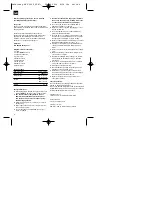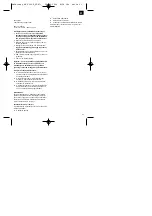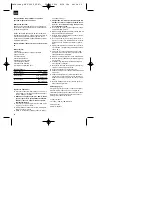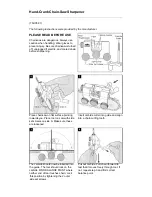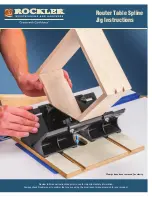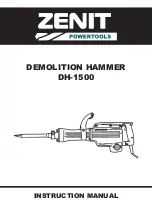
7
GB
Possible uses for the hot air pistol:
1. Removal of paint and lacquer.
Attention!
Hazardous or poisonous gasses may be pro-
duced while removing paint or lacquer. Be
sure to provide adequate ventilation.
2. Removal of stickers and decorations.
3. Loosening of rusted or tightly fastened nuts and
metal screws.
4. Thawing of frozen pipes, door locks, etc.
Attention: no not attempt to thaw plastic or
synthetic pipes.
5. Accentuation of natural wood grains before stai-
ning or lacqueing.
6. Shrinkage of PVC packaging foils and insulation
tubes.
7. Waxing and de-waxing of skis.
Caution: Intensive heating means a higher risk of
fire and explosion! Ensure good ventilation.
Harmful and/or toxic gases and vapors may be
emitted.
Choosing the right nozzle:
●
The deflector nozzle (5) diverts the hot air to pro-
tect glass etc. from overheating. Use it to strip
paints.
●
Use the fishtail nozzle (6) to distribute the air uni-
formly over small areas.
●
Use the cone nozzle (7) to confine the heat to cor-
ners and small areas.
●
Use the reflector nozzle (8) to solder and shape
pipes, to thaw frozen water pipes and to heat
shrink-down insulation tubing.
Maintenance:
Always keep the openings for air entry and exit clean
and free of dirt.
Clean the hot air pistol with a damp cloth and a hou-
sehold cleaner. Do not clean with solvents.
Ordering replacement parts
Please quote the following data when ordering repla-
cement parts:
앬
Type of machine
앬
Article number of the machine
앬
Identification number of the machine
앬
Replacement part number of the part required
For our latest prices and information please go to
www.isc-gmbh.info
Anleitung AHP 2000_SPK7:_ 24.10.2006 8:58 Uhr Seite 7






